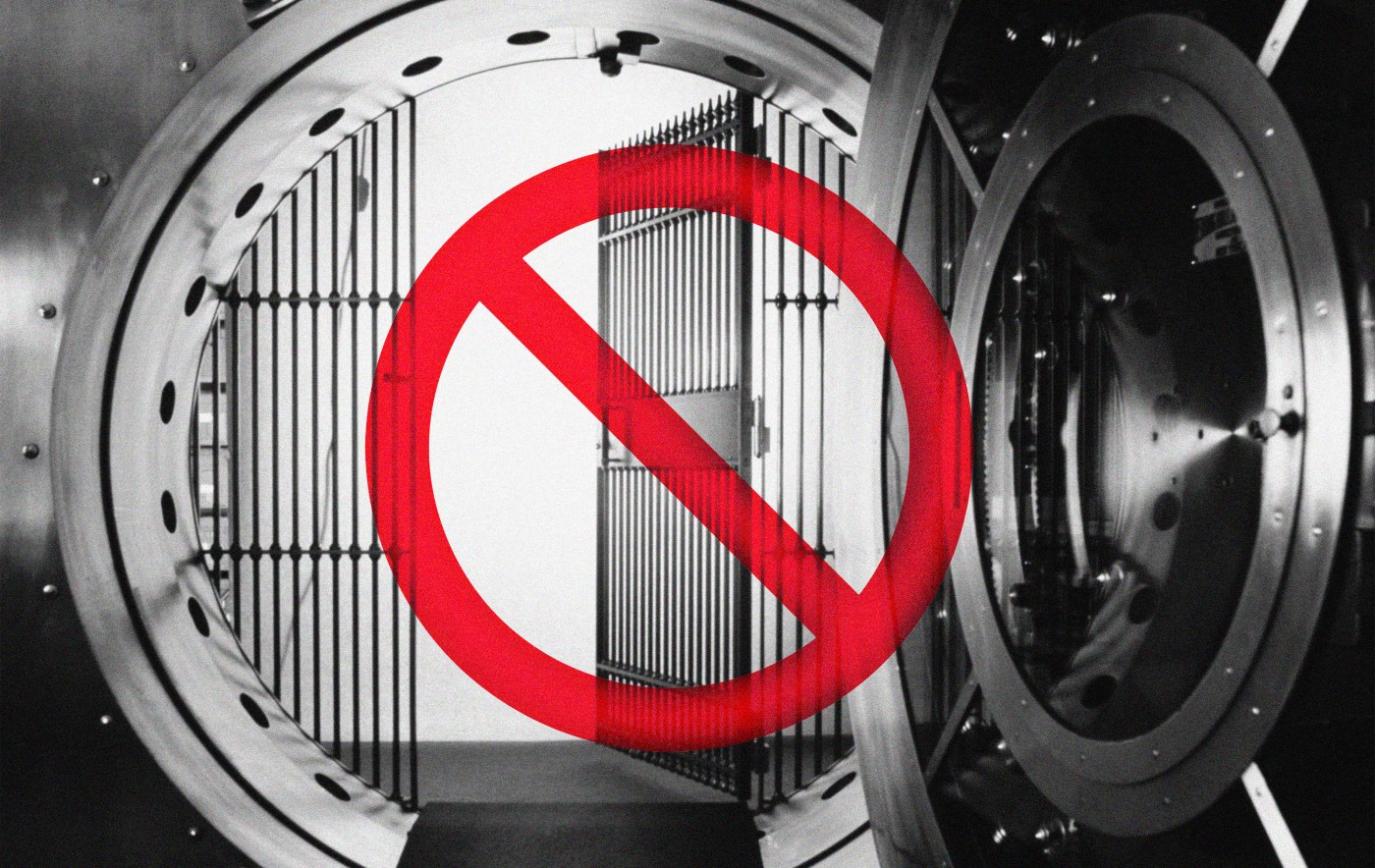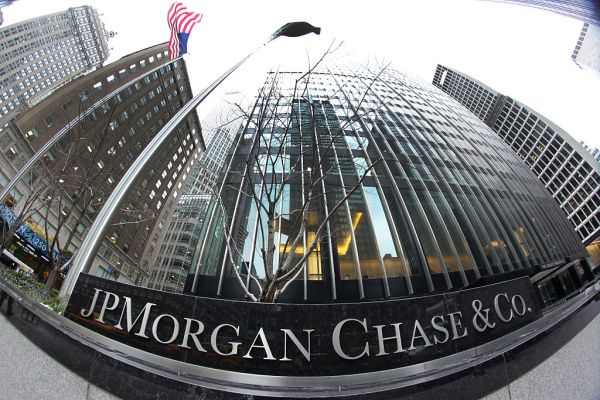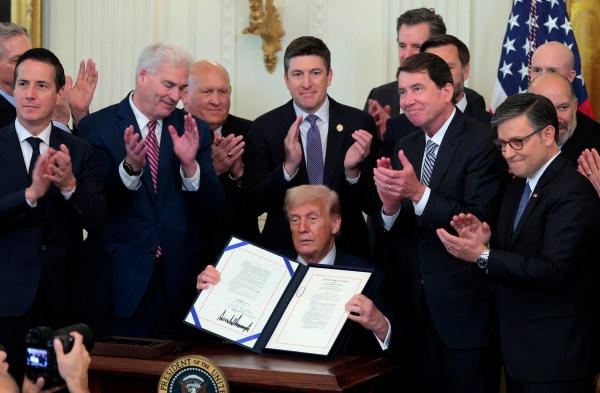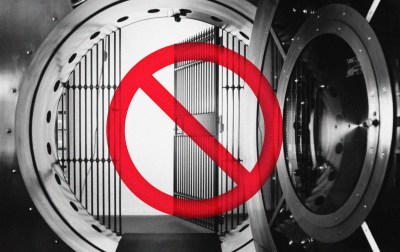The Trump White House is putting banks on notice, warning them over policies that result in the denial of service to some customers. Over the past several years, some conservative activists have claimed that banks, under pressure from federal regulators, have shut down accounts for businesses and individuals on the basis of their political affiliations or religious beliefs.
In one prominent case, former Kansas Gov. Sam Brownback claimed that JPMorgan Chase closed an account opened by the National Committee for Religious Freedom, which he chairs, for religious reasons—a charge that the bank denies. Two weeks ago, President Donald Trump himself claimed in an interview with CNBC that he had been debanked by both JPMorgan Chase and Bank of America. “They totally discriminate against—I think me maybe even more—but they discriminated against many conservatives,” he said. Both banks have said that they do not discriminate against clients based on their political viewpoints.
On August 7, Trump issued an executive order on the issue, titled “Guaranteeing Fair Banking for All Americans.” The order argues that, “Bank regulators have used supervisory scrutiny and other influence over regulated banks to direct or otherwise encourage politicized or unlawful debanking activities,” and that, as a result, “individuals, their businesses, and their families have been subjected to debanking on the basis of their political affiliations, religious beliefs or lawful business activities, and have suffered frozen payrolls, debt and crushing interest, and other significant harms to their livelihoods, reputations, and financial well-being.”
Debanking—when a bank either refuses to offer services to a would-be customer or ends its provision of services to an existing customer—has been a long-debated, if not particularly high profile, political issue over the past decade. However, the issue shot into the mainstream in November 2024 when, following Trump’s victory in the presidential election, billionaire investor Marc Andreessen claimed on an episode of the Joe Rogan Experience podcast that he personally knew many investors and entrepreneurs who had been debanked for “having the wrong politics.” Andreesen’s words were soon amplified on X by Elon Musk, who was then one of the most influential figures in the incoming Trump administration.
Is debanking really occurring?
Debanking is a complex issue. The act of debanking particular customers does occur, but big banks maintain the fault lies with regulatory rules, not discriminatory motives. Issues surrounding the practice have drawn efforts at reform from both sides of the political aisle. However, the true extent of debanking as a serious problem is largely unclear, and banking policy experts say there is little evidence that Americans have been discriminated against by financial institutions based solely on their religious or political beliefs.
“Frankly, I don't find the argument that conservatives and Christians are being debanked en masse persuasive simply because we're not seeing it,” Nick Anthony, a policy analyst at the libertarian-leaning Cato Institute’s Center for Monetary and Financial Alternatives, told The Dispatch. “It's anecdotal cases. And I absolutely empathize with the people who have been on the other side of it and have to deal with how frustrating this is, but I don’t think it’s what it’s been billed out to be.”
Under certain statutory and regulatory requirements, banks are obligated to refuse to accept certain customers to combat financial crime. For example, banking clients suspected of dealing in illegal activities like financing of terrorism probably should, and often do, have their access to financial services restricted in compliance with anti-money laundering laws. The Bank Secrecy Act requires banks to assist government agencies in monitoring for and investigating money laundering, primarily through record keeping and reporting of certain cash transactions and the filing of suspicious activity reports. Repeated instances of suspicious activity can lead to a customer’s account being closed. Likewise, clients with very low credit scores or with a high risk of delinquency often have accounts closed or are refused accounts for financial or risk-related reasons. “In the vast majority of cases where debanking exists, it is for entirely good reasons,” Thomas Kingsley, director of financial services policy at the center-right American Action Forum, told The Dispatch.
However, while banks generally close accounts for legitimate reasons, cases do occur when individuals or companies may have their accounts closed despite no wrongdoing on their part. Because the Bank Secrecy Act requires financial institutions to identify and report suspicious transactions, and the risks to banks are high for failing to report illegal activity to regulators like the Office of the Comptroller of the Currency and the Department of the Treasury, a bank may close an account simply because some of its transactions fit the profile of suspicious activity. “If a financial institution misses anything that's suspicious, they can be held on the hook for that, they can get fined for that, and we see that happen,” Anthony said. “And because of that, financial institutions are generally very risk averse when it comes to this type of thing.”
For example, because banks must file currency transaction reports for all cash transactions above $10,000, transactions of amounts slightly below the $10,000 threshold are often flagged under the suspicion that they could be purposefully evading the reportable amount. This requires the bank to file a suspicious activity report, even if the individual transaction is completely legitimate. For accounts with many such transactions, the cost of compliance for the bank and potential risk associated with the account may lead the bank to end its relationship with the customer, even if the customer didn’t actually do anything wrong. “If you have a bank account with a bank, and they start to see that you accumulated two or three or four suspicious activity reports, the regulator is going to come to the bank and say, ‘Why are you still doing business with this customer, they're risky,’” a banking policy expert, who was granted anonymity to speak candidly, told The Dispatch. “It becomes a point where it's no longer worth doing business with that customer, because now you have all of these added requirements behind the scenes the regulators have instituted.”
Cases like these are particularly problematic because confidentiality requirements in both the supervisory process and regarding suspicious activity reports largely prohibit banks from disclosing why a decision was made to close a person’s account, meaning individuals or companies that have been debanked often aren’t able to find out exactly why. “[Banks] are essentially under a gag order anytime some of this stuff happens, and they can't say anything or defend themselves,” the banking policy expert said. Anthony thinks this uncertainty is one reason anecdotal cases emerge in which individuals believe they may have been discriminated against because of their political or religious beliefs. “[The banks] can't even tell you, ‘This is what you did that is causing us to part ways,’” he said. “And sadly, when you're left in the dark like that … it seems pretty easy to jump to big conclusions that it might be something as severe as discrimination.”
Operation Choke Point.
While debanking, defined broadly as when a bank declines to serve or closes the account of a person or business, has existed in some form for as long as banks have operated, the issue has been more pronounced in American political debates for the past decade. Concerns around politicized debanking notably intensified during the second term of the Obama administration when the Department of Justice, alongside financial regulators like the FDIC, pressured financial institutions to refuse services to businesses in industries including gun manufacturing, cannabis, pornography, and payday loans.
The initiative, which was informally known as Operation Choke Point, nominally intended to suffocate businesses that were involved in illegal financial activities by cutting them off from banking services that they relied on to operate. Banks, regulators argued, would suffer from “reputational risk” by serving such clients, and should therefore close accounts associated with them. “You had regulators coming in and saying, ‘We determined this industry to be riskier than this one, and so, therefore, you should have to do all these additional requirements in order to do business with this company,” the banking policy expert said. However, Choke Point drew quick criticism from Republicans who argued that regulators were using their supervisory authority to debank otherwise legal businesses in industries that the administration simply did not like. “It seems relatively clear that the Obama administration pointed out categories of potential clients that they wanted banks to move away from,” Kingsley said.
Operation Choke Point was eventually terminated by the Department of Justice in 2017 after a yearslong effort led largely by Missouri Rep. Blaine Luetkemeyer. Four years later, in the final days of Trump’s first term, the Office of the Comptroller of the Currency (OCC) also finalized a rule on prior OCC guidance that large financial institutions should conduct risk assessments on individual customers, not broad categories of businesses—an effective prohibition on the “reputational risk” framework leveraged by regulators during Operation Choke Point. However, the Biden administration’s regulatory freeze two weeks later meant the rule was never adopted.
During the Biden administration, accusations of discriminatory debanking reemerged. This time, the victims were individuals and businesses in the cryptocurrency industry. Following the collapse of the crypto firm FTX in 2022 and of several banks with heavy exposure to crypto businesses in 2023, the administration began encouraging banks to refuse service to crypto firms as part of a broader legal campaign against the industry. The practice, critics labeled as Choke Point 2.0, again used the framework of reputational risk to insist that banks should not service crypto businesses, which have long been associated with fraud, scams, and money laundering.
Reputational risk.
Trump’s executive order primarily focuses on this concept of reputational risk in banking regulation. The order directs each federal banking regulator to “remove the use of reputation risk or equivalent concepts that could result in politicized or unlawful debanking, as well as any other considerations that could be used to engage in such debanking, from their guidance documents, manuals, and other materials.” Some federal regulators, such as the Federal Reserve, however, had already dropped reputational risk from their examination and supervision programs for banks in recent months. “It's almost like the White House is trying to take credit for things that its own administration has already done,” Kingsley said. “So a lot of this is very much just, I think, a framing exercise.”
Efforts to remove reputational risk as a supervisory requirement for regulators are not particularly novel. On Capitol Hill, South Carolina Sen. Tim Scott, who chairs the Senate Banking Committee, has been pushing legislation to do just that. In March, Scott, alongside his Republican colleagues on the Senate Banking Committee, introduced the Financial Integrity and Regulation Management Act, which would eliminate reputational risk as a measure that regulators can use to supervise financial institutions. “It’s clear that federal regulators have abused reputational risk by carrying out a political agenda against federally legal businesses. This legislation, which eliminates all references to reputational risk in regulatory supervision, is the first step in ending debanking once and for all,” Scott said in a statement at the time.
Anthony believes that letting banks decide for themselves how they assess reputational risk is a step in the right direction for the administration. “While maybe on paper, it's reasonable to want to think about [reputation] as a risk factor, it's just too subjective to do in practice, and it really needs to be left to the individual business to decide what they want their reputation to be,” he said.
However, he still doesn’t believe that the administration’s claims that political conservatives or Christians have been unfairly targeted are entirely valid. “I'm absolutely open to being convinced that it's happening, I just haven't seen the evidence for it yet,” he said. “We see people with Muslim last names and Russian last names affected by this. We see people who are operating in the cannabis industry, where it's legal at the state level, affected by this. So the issue of sudden account closures is, unfortunately, something that affects all walks of life, really. It's not limited to any one group.”







Please note that we at The Dispatch hold ourselves, our work, and our commenters to a higher standard than other places on the internet. We welcome comments that foster genuine debate or discussion—including comments critical of us or our work—but responses that include ad hominem attacks on fellow Dispatch members or are intended to stoke fear and anger may be moderated.
With your membership, you only have the ability to comment on The Morning Dispatch articles. Consider upgrading to join the conversation everywhere.